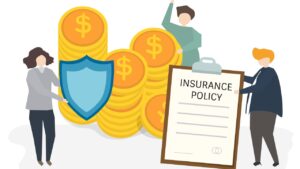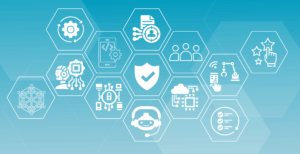Financial security often feels like an elusive dream, something reserved for a privileged few. Yet, the truth is that the path to financial well-being is not paved with luck, but with knowledge. In an increasingly complex economic landscape, being financially literate is no longer a luxury—it is an absolute necessity, the foundation upon which true personal empowerment is built.
This journey of empowerment through financial knowledge is a lifelong endeavor, one that grants you the control to navigate life’s inevitable financial currents, from day-to-day spending to long-term wealth creation. It shifts your relationship with money from one of fear and uncertainty to one of confidence and strategy.
The Transformative Power of Financial Literacy
Financial literacy is about understanding and effectively applying a range of financial skills, including personal financial management, budgeting, saving, debt management, and investing. Its benefits are profound, reaching far beyond the balance in your bank account:
1. Gaining Control and Reducing Stress: The single most immediate and tangible benefit is the sense of control. When you understand where your money comes from, where it goes, and how it can grow, you replace anxiety with clarity. Financial stress is a leading cause of psychological distress; financial knowledge acts as a powerful antidote, fostering peace of mind and resilience.
2. Informed Decision-Making: Financial knowledge allows you to discern between good and bad financial products, helping you avoid predatory loans, high-interest debt traps, and outright scams. You learn to critically evaluate credit card offers, mortgage terms, and investment opportunities, ensuring every decision is aligned with your best interests and long-term goals.
3. Building a Robust Future: The principles of saving and investing, when understood early, leverage the power of compounding. Financial knowledge helps you prioritize and plan for major life events—whether it’s building an emergency fund, saving for a down payment on a home, funding your children’s education, or securing a comfortable retirement.
4. Wealth Creation and Preservation: Moving beyond merely “getting by,” financial literacy teaches you how to make your money work for you. By understanding concepts like diversification, risk management, and market cycles, you are better positioned to make wise investment choices that build and preserve intergenerational wealth.
The Pillars of Financial Knowledge
To truly empower yourself, your educational journey should be structured around several core pillars:
Pillar 1: Mastering Your Cash Flow (Budgeting and Saving)
The starting point for all financial empowerment is understanding your income and expenses. A budget is not a restrictive tool; it is a strategic map that gives every dollar a purpose.
- Track Everything: Use apps, spreadsheets, or even a notebook to rigorously track all income and outflow for at least a month. This reveals where your money is actually going versus where you think it’s going.
- Create a Strategic Budget: Implement a framework like the 50/30/20 rule (50% for needs, 30% for wants, 20% for savings and debt) or the Zero-Based Budgeting method. The key is to find a system you can stick to.
- Prioritize the Emergency Fund: Aim to save three to six months’ worth of living expenses in an easily accessible, high-yield savings account. This fund is your financial security blanket, protecting you from having to take on high-interest debt during unexpected crises like job loss or medical expenses.
- Automate Savings: The most effective way to save is to make it automatic. Set up an automatic transfer from your checking account to your savings or investment accounts immediately after payday.
Pillar 2: Taming Debt and Understanding Credit
Debt is a tool—it can be used to leverage assets (like a mortgage) or it can be a significant drain on your financial future (like high-interest credit card debt). Financial knowledge is key to managing the difference.
- Know Your Credit Score: Your credit score is your financial report card. Understand what factors influence it (payment history, amounts owed, length of credit history) and regularly review your credit report for errors. A good score translates to lower interest rates on loans, saving you thousands over time.
- Develop a Debt Payoff Strategy: Prioritize high-interest debt first. Strategies like the “Debt Avalanche” (paying off the debt with the highest interest rate first) or the “Debt Snowball” (paying off the smallest balance first for a quick psychological win) can be incredibly motivating.
- Use Credit Responsibly: Credit cards should be treated as a convenience, not an extension of your income. Pay off the full balance every month to avoid interest charges.
Pillar 3: The Fundamentals of Investing
This is where your money starts working for you. Investing, often seen as complicated, rests on a few core principles.
- Start Early: Time is the most powerful ally in investing. Due to compounding, even small amounts invested early can outperform large amounts invested later.
- Understand Risk and Diversification: Don’t put all your eggs in one basket. Diversify your investments across different asset classes (stocks, bonds, real estate) and geographies to mitigate risk.
- Leverage Retirement Accounts: Fully utilize tax-advantaged accounts like employer-sponsored 401(k)s or IRAs. At a minimum, contribute enough to get the full employer match—it’s essentially free money.
- Keep Fees Low: High investment fees erode your returns over time. Opt for low-cost index funds or exchange-traded funds (ETFs) that track major markets.
The Action Plan: Your Path to Lifelong Learning
Empowerment is an active process. Here are concrete steps to continually boost your financial knowledge:
- Seek Reputable Sources: Start by reading well-regarded personal finance books, following established financial news sites, and subscribing to newsletters from accredited experts. Be wary of “get rich quick” schemes.
- Take a Course: Many reputable universities and financial institutions offer free or low-cost online courses on personal finance, investing, and retirement planning.
- Use Financial Tools: Employ budgeting apps, debt calculators, and retirement planners. These tools translate abstract concepts into personalized, actionable data.
- Find a Mentor or Community: Engage with a trusted financial advisor (a fiduciary who is legally obligated to act in your best interest) or join a supportive, knowledge-sharing financial community.
- Review Annually: Financial landscapes and personal circumstances change. Dedicate time each year to review your budget, update your financial goals, and rebalance your investment portfolio.
Conclusion
Financial knowledge is the key that unlocks the door to a life lived on your own terms. It is the engine of financial independence, fueling the ability to choose your path without the constant constraint of debt or fear. By dedicating yourself to learning and applying the principles of sound money management, you are not just managing your finances—you are actively empowering yourself. This is the greatest investment you can ever make, one that promises a lifetime of returns in security, freedom, and peace of mind. Start today; your future self will thank you for it.



